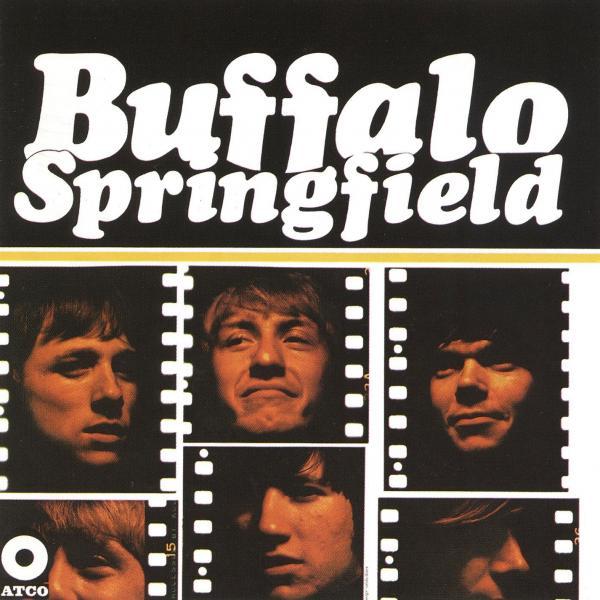


Buffalo Springfield: Self Titled
Album #70 - December 1966
Episode date - May 6, 2015
This is the record where the world at large first heard of Neil Young and Stephen Stills. Separately, they had written every song on the album, with Stills dominating side 1 and Young writing all of side 2 except the closing track.
From the outset, Buffalo Springfield seemed to be a band made of parts greater than the whole, as the disparate pieces never gelled into anything cohesive, but the pieces were magnificent. It was as though the songwriters made a pact to share a band as the catalyst for their distinctive material, then set to work. Both Stills and Young emerged from a folk scene that was slowly dissipating as rock and roll absorbed its influences, and their songwriting was a direct product of that specific moment in time. This album was their attempt to get out of coffee shops and into nightclubs, and it worked brilliantly.
One odd feature of the record is how Neil Young is his own lead vocalist on only two of his compositions, with Richie Furay singing lead in his place, presumably because the record company was not convinced that Young’s voice would appeal to the intended audience. Furay has an excellent voice but it lacked the character of Young’s tenor-y warble. Also, it’s rare for any interpreter to sing with the same passion as the writer, so those songs suffer in comparison to those where Young sings for himself, although it is very interesting to hear Furay replace Young on a song entitled “Nowadays Clancy Can’t Even Sing.”
There is a distinct difference is the somgwriting styles of the band’s two principals. Stills’ writing is direct and literal, while Young’s songs have a surreal quality that makes them tough to interpret. Interestingly, at least two of Young’s songs seem to betray a wariness of fame, even at this early stage of his career (“Out of My Mind”, “Clancy”), while Stills’ songs have a strong country tinge, proving that he deserves much more credit than he gets for motivating rock and roll in the direction of country and Americana styles.
Their guitar styles are also drastically different, with Stills preferring controlled melodic fluidity while Young utilizes a plethora of pedals and flails like a banshee. This debut album was a game changer, especially in light of all that would spawn in its wake, even though the band themselves were not particularly pleased with it at the time. All this time later, it’s hard to understand why, because it is simply a brilliant debut featuring musicians who would become some of the most important characters of the next decade, and beyond.
December 1966 - Billboard Charted #80
Related Shows













